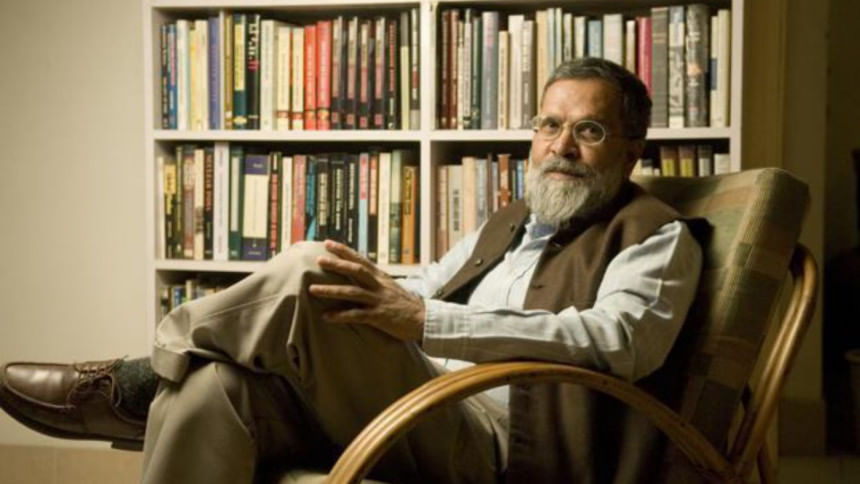Tribute to a courageous voice

Laloo's 'Poison' Or Nitish's Elixir?
Bihar elections' significance
HAS a secular anti-Bharatiya Janata Party alliance at last been sealed in Bihar, following Rashtriya Janata Dal leader Laloo Prasad's declaration that he would fight the Assembly elections jointly with the Janata Dal (United) and Congress, with Nitish Kumar as its Chief Ministerial candidate?
The final answer would only emerge when seat-sharing arrangements have been negotiated. Yet, if a strong secular alliance is forged, it will doubtless give the BJP-led National Democratic Alliance a bloody nose and prove a greater trendsetter than the Aam Aadmi Party's Delhi victory.
The BJP's defeat in a core Hindi-heartland state would take the shine off Modi's artificially-glorified image and strengthen growing disenchantment with him.
It wasn't easy to persuade Prasad to accept Kumar's leadership. The two have traded charges of "jungle raj" and "betrayal". Even more important was the BJP's pressure, coupled with handsome inducements, to wreck JD(U)-RJD reconciliation.
What brought Prasad around was a two-pronged approach: convincing him he would become a pariah by collaborating with the BJP; and second, getting the Congress to force him to accept Kumar's leadership.
JD(U) chief Sharad Yadav got RJD members to send Prasad one lakh-plus SMSs for a JD(U) alliance. Secondly, Rahul Gandhi told him that the alliance is non-negotiable.
One hopes Prasad puts his heart into building the alliance. Earlier, he tried to undermine it, by using Samajwadi Party leaders to veto a merger between various Socialist groups which joined the Janata Party. The 'Janata Parivar' merger was to precede the Bihar alliance.
This Parivar, to be headed by SP chief Mulayam Singh, would also include HD Deve Gowda's JD (Secular), and smaller splinters—with 15 MPs in the Lok Sabha and 25 in the Rajya Sabha.
Last month, the SP ruled out a merger before the Bihar elections. This partly reflected the reluctance of Janata Parivar leaders to cede to others the perks they enjoy as party chiefs, including exclusive party offices in central Delhi.
Prasad's other ploy, proposing that Nitish rival Jitan Ram Manjhi join the alliance, collapsed. Manjhi was made CM after the JD(U)'s rout in the Lok Sabha. He started building his own base and was removed. He has since cosied up to the BJP. Nitish could have prevented that by placating Manjhi, but didn't.
The RJD and JD(U) are divided along caste-community lines. The RJD mainly represents the Yadavs, the uppermost OBCs, about 12 percent of the population. The JD(U) represents the Kurmis (8 percent), other lower OBCs and non-Paswan Dalits.
Modi's BJP-led alliance exploited these rivalries and won 31 out of Bihar's 40 Lok Sabha seats. This was attributable to the false hopes Modi created, his use of his OBC identity, and the immense caste-class polarisation he wrought. A staggering 78 percent of the upper castes and 68 percent of Paswans voted for the BJP-led combine.
The opposition vote was divided between RJD (20.5 percent), JD(U) (16.0), Congress (8.6), and NCP (1.2), but still added up to 46.3 percent—well above the combined vote of the BJP (29.9 percent), LJP (6.5) and RLSP (0.1), totalling 36.5 percent. Ten percent represents a massive lead in a two-way fight.
Even if the opposition's combined vote falls somewhat, it will probably still have an unbeatable advantage. Modi's honeymoon is long over; and the underprivileged who voted for him from ignorance of the Gujarat model, and the desperate hope that he would deliver jobs, are sorely disappointed. Even the upper castes are unlikely to show much pro-BJP enthusiasm.
The election won't be a cakewalk for the JD(U)-RJD combine. But it's an eminently winnable fight if it agrees on a reasonable seat distribution formula and campaigns sincerely for the selected candidates.
That formula cannot be based on the 2010 Assembly elections, when the RJD won just 22 seats (Bihar's total, 243) with a 18.8-percent share, and the JD(U) won 115 seats with a 22.6-percent share.
Nor can the formula be founded on the exceptional 2014 election. A new paradigm is necessary, based on balanced constituency-wise representation of social groups and candidate credibility.
The secular bloc parties must negotiate this soon. They would be wrong to exclude the Left. The Communist Party of India and the CPI(ML-Liberation) have a sizeable base among Bihar's poor peasants and landless. They can also provide sensible policy guidance to the secular bloc.
Bihar's Socialists and Communists had a creative dialogue and mutually beneficial, if competitive, relationship between the 1950s and the mid-1970s. It was disrupted when the Socialists merged into the Janata Party, from which they came out splintered. The Communist Left must now be included in the secular bloc.
Kumar is relying on the likes of publicist Prashant Kishor, who played a key role in Modi's campaign through Big Business-funded Citizens for Accountable Governance. Kumar would do better to get advice from tried and tested progressives.

 For all latest news, follow The Daily Star's Google News channel.
For all latest news, follow The Daily Star's Google News channel. 



Comments